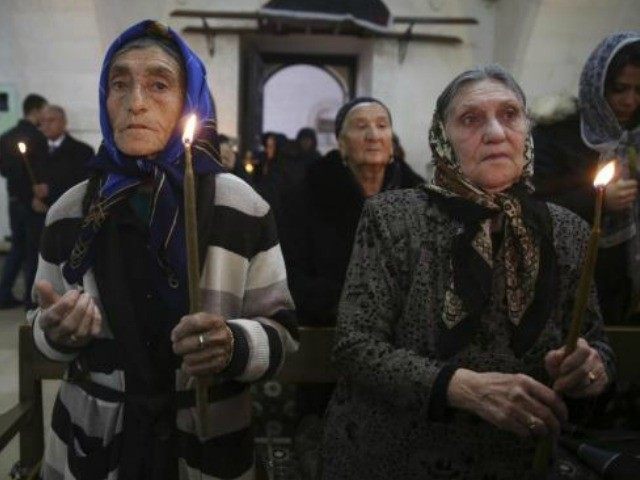In a significant gesture, the Turkish government has authorized the construction of a Syriac Christian church in Istanbul, the first to be built since the establishment of the Turkish Republic in 1923.
The decision came during a meeting on Friday of Prime Minister Ahmet Davutoglu with representatives of non-Muslim minority communities at the prime ministry’s office in Istanbul, known as the Dolmabahce Palace. Turkey has been under increasing pressure to show good will toward Christians and a true commitment to religious freedom. Several important factors have contributed to nudging Turkey in the direction of greater religious liberty.
First, the announcement of the approval comes just over a month after Pope Francis’ visit to Ankara and Istanbul on November 29 and 30. The Pope was worried then about the precarious situation of Eastern Christians threatened by jihadists in Iraq and Syria. On returning to Rome, Francis explained that in his recent trip to Turkey he had “insisted” on the importance of Christians and Muslims working together and “declared that each State must assure citizens and religious communities real freedom of worship.”
Second, the international community has been especially vigilant regarding Turkey’s practice of religious freedom, which suggests that this latest concession represents an attempt to show the world that Turkey is turning over a new leaf. Significantly, in its annual report for 2014, the US Commission on International Religious Freedom returned Turkey to “Tier 2″ (the former “Watch List”), noting that “the overall landscape for democracy and human rights has deteriorated significantly during the past year, including serious new restrictions on internet freedom, privacy, and media freedom, with troubling implications for freedom of religion or belief in Turkey.”
Third, the decision to build a new church coincides with the upcoming celebration of the centenary of the Armenian Genocide and there has been strong international pressure for the Turkish government to recognize the genocidal nature of this mass crime in which Turks killed some 1.5 million Armenians. Armenians mark the date of April 24, 1915, when several hundred intellectuals were rounded up, arrested, and later executed, as the start of the Armenian Genocide, which is generally understood to have extended to 1917.
Since 2002, Turkey has been ruled by an Islamic-conservative party, the AKP, which critics accuse of promoting Islamist nationalism. At the same time Turkey has continued negotiations in its bid for membership to the European Union.
Prime Minister Ahmet Davutoglu expressed his regret that religious minorities are often perceived by his fellow citizens as “affiliated to other countries.” He stated: “All are equal and true citizens of the Republic of Turkey” and also said that his government considers the cultural, religious, and ethnic diversity of the country as a blessing.
The prime minister also insisted that the ruling AK Party “does not discriminate between our citizens” and that “the principle of equal citizenship continues to be our characteristic trait.”
Currently there are some 90,000-100,000 Christians in Turkey, a tiny minority in a country of 77 million inhabitants with a strong Sunni Muslim majority. Religions in Turkey are under the tight control of the Directorate of Religious Affairs, which reports directly to the Prime Minister.
Among the Christians, an estimated 60,000 are Armenians and 25,000 are Catholics, split between the four rites: Latin, Armenian, Syriac and Greek. There are also some 2000-3000 Greek Orthodox and barely 1,000 Protestants.
The various Syriac churches are among the oldest Christian communities, and use Aramaic, the language of Jesus Christ, in their services.
The new church is to be built in the district of Yesilköy, bordering the Sea of Marmara, on land granted by the municipality. Its construction will be launched in the coming months, funded by a foundation defending the rights of Syriac Christians.
Many Christian refugees in Turkey are Assyrians, Chaldeans, and Syriacs from Mosul and the Nineveh Plain.
Follow Thomas D. Williams on Twitter @tdwilliamsrome

COMMENTS
Please let us know if you're having issues with commenting.